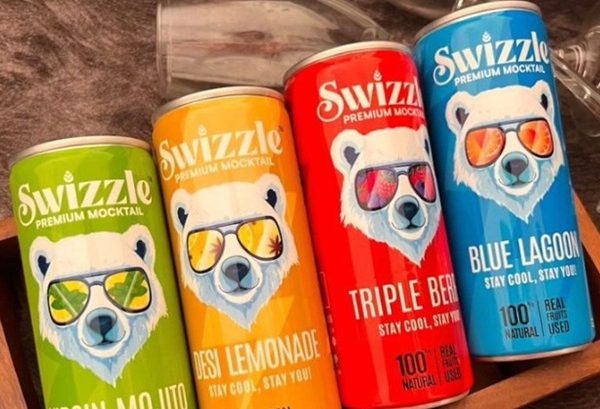The Shift to Digital Distribution in Africa’s Beverage Market

As consumers become more digitally connected, beverage brands are discovering new and innovative ways to reach their target audiences beyond traditional retail outlets. This shift is not only expanding market reach but also transforming how brands engage with consumers, personalize experiences, and optimize their distribution strategies.
With digital infrastructure improving across the continent and smartphone penetration on the rise, e-commerce presents a significant growth opportunity for the RTD beverage sector. Brands that effectively leverage digital distribution channels—whether through third-party platforms, owned e-commerce sites, or social commerce—are well-positioned to drive sales, increase brand loyalty, and stay ahead in an increasingly competitive marketplace.
E-Commerce in Beverage Sales: A Game-Changer for Accessibility
Online retail is rapidly redefining the way African consumers purchase beverages. The convenience of ordering drinks online, coupled with the availability of multiple payment options and fast delivery services, is making e-commerce a preferred shopping channel for many. As mobile internet penetration deepens, particularly in urban areas, consumers are more comfortable making digital purchases, creating a thriving online marketplace for RTD beverages.
Leading e-commerce platforms such as Jumia, Glovo, and Uber Eats have significantly improved the accessibility of functional beverages, allowing consumers to order their favorite drinks with just a few taps on their smartphones. These platforms have not only expanded market reach for brands but have also introduced new purchasing behaviors, including home delivery and subscription-based models that offer convenience and consistency to consumers.
Beyond third-party marketplaces, beverage brands are increasingly investing in their direct-to-consumer (DTC) sales channels, enabling them to control the customer experience, build stronger relationships with their audience, and enhance brand loyalty. Through social media-driven commerce, WhatsApp business interactions, and dedicated brand-owned e-commerce platforms, companies can create personalized shopping experiences, offer exclusive promotions, and gather valuable first-party data on consumer preferences and purchasing habits.
Personalization is a major advantage of DTC channels, as brands can tailor recommendations, offer loyalty rewards, and provide subscription services that cater to individual customer needs. This direct engagement fosters a deeper sense of trust and brand affinity, making it a crucial strategy for companies looking to differentiate themselves in the crowded RTD beverage market.
Mobile Payments and the Expansion of Cashless Transactions
As Africa continues to move towards a cashless economy, mobile payment solutions are playing a crucial role in the evolution of digital beverage sales. Mobile money platforms such as M-Pesa (Kenya), MTN Mobile Money (West Africa), and Flutterwave (Nigeria) have revolutionized the way transactions are conducted, providing consumers with seamless and secure payment options. The increasing adoption of mobile wallets and fintech solutions is further driving the growth of e-commerce and digital transactions, making it easier for consumers to purchase RTD beverages online.
For beverage brands, mobile payments offer several strategic advantages:
Faster Transactions: Digital payments eliminate the need for cash handling, reducing transaction time and enhancing customer convenience.
Data-Driven Decision-Making: Payment trends offer valuable insights into purchasing behaviors, seasonal demand shifts, and preferred product categories, allowing brands to refine their marketing strategies.
Improved Accessibility: Consumers in remote or underserved areas can now access a wider variety of RTD beverages online, overcoming the limitations of traditional retail distribution.
Enhanced Security: Digital transactions reduce the risk of theft and fraud associated with cash payments, offering a safer alternative for both consumers and businesses.
As digital adoption continues to accelerate, beverage brands must remain agile and innovative in their approach to e-commerce and mobile payments. The future of RTD beverage sales in Africa will be shaped by the ability of brands to integrate digital touchpoints, leverage AI-driven personalization, and enhance the overall online shopping experience.
Emerging trends such as voice commerce, AI-powered chatbots for customer service, and blockchain-based traceability in beverage sourcing and supply chains are expected to further revolutionize the sector. Brands that stay ahead of these trends and invest in digital transformation will not only thrive but also redefine how African consumers engage with and purchase functional beverages in the years to come.
Social Media and Influencer-Driven Sales
Social commerce is another powerful distribution channel shaping Africa’s beverage industry. Many brands leverage Instagram, Facebook, and TikTok influencers to promote new RTD products, engage directly with customers, and drive online purchases.
With younger consumers increasingly trusting peer recommendations over traditional advertising, influencer collaborations are proving to be a highly effective sales strategy. Beverage brands that embrace this model can create viral trends, driving product awareness and increasing conversions.
Challenges and Opportunities in Digital Distribution
Despite the opportunities, digital distribution still faces challenges in Africa, including logistical hurdles, inconsistent internet access, and last-mile delivery limitations. To overcome these barriers, beverage companies are partnering with third-party logistics firms and leveraging local distribution hubs to streamline fulfillment operations.
Additionally, the adoption of AI-driven supply chain optimization and inventory forecasting tools is helping brands manage demand fluctuations and ensure product availability in key markets.
Brands that prioritize e-commerce expansion, mobile payment integration, and social commerce strategies will gain a competitive advantage in the evolving market. As digital infrastructure continues to improve, beverage companies must adapt and innovate to meet the changing preferences of African consumers.
To download the full report and discover key strategies to capitalize on this growing market, CLICK THE LINK: https://www.pierrine-consulting.com/expertise/resources/rtd-beverages-in-africa/.
Ready to invent the future?
Our teams possess extensive in-market experience that drives measurable growth for brands. Please reach out to us to learn more.
